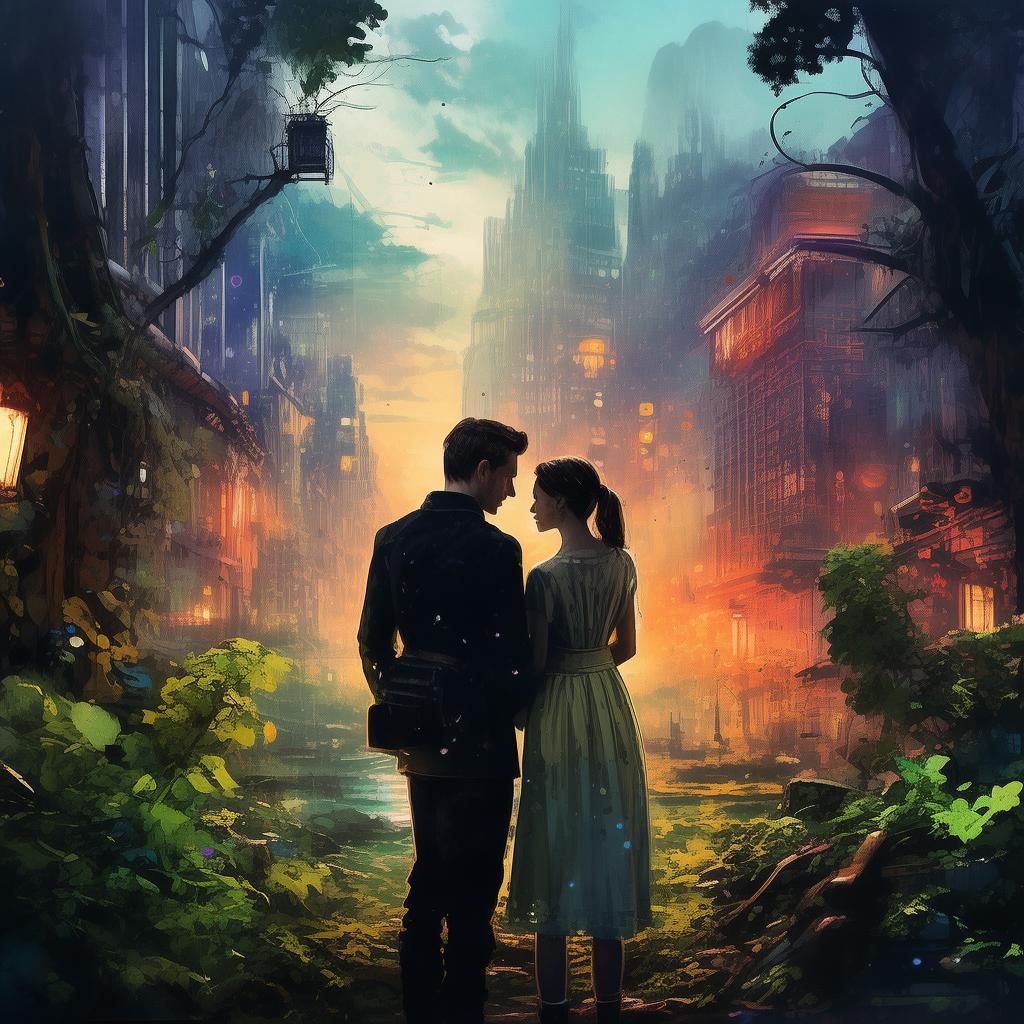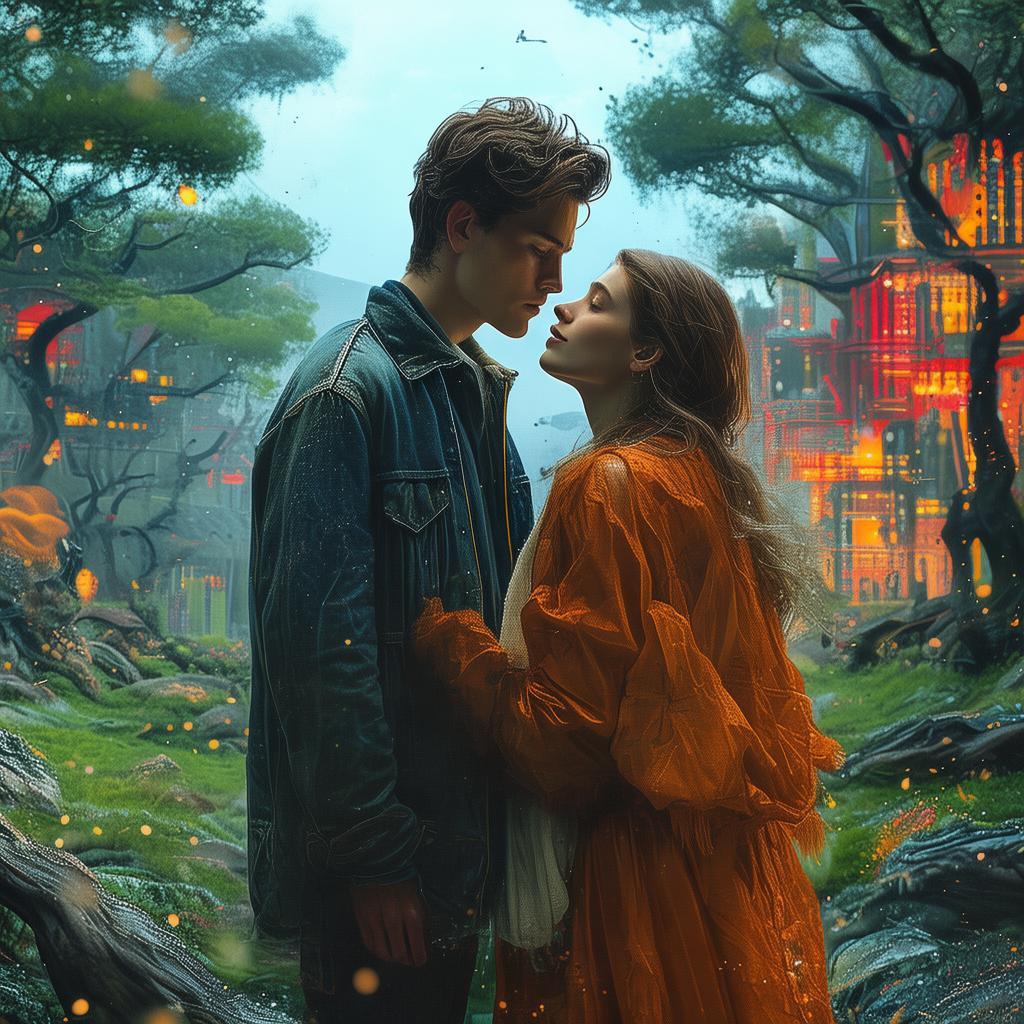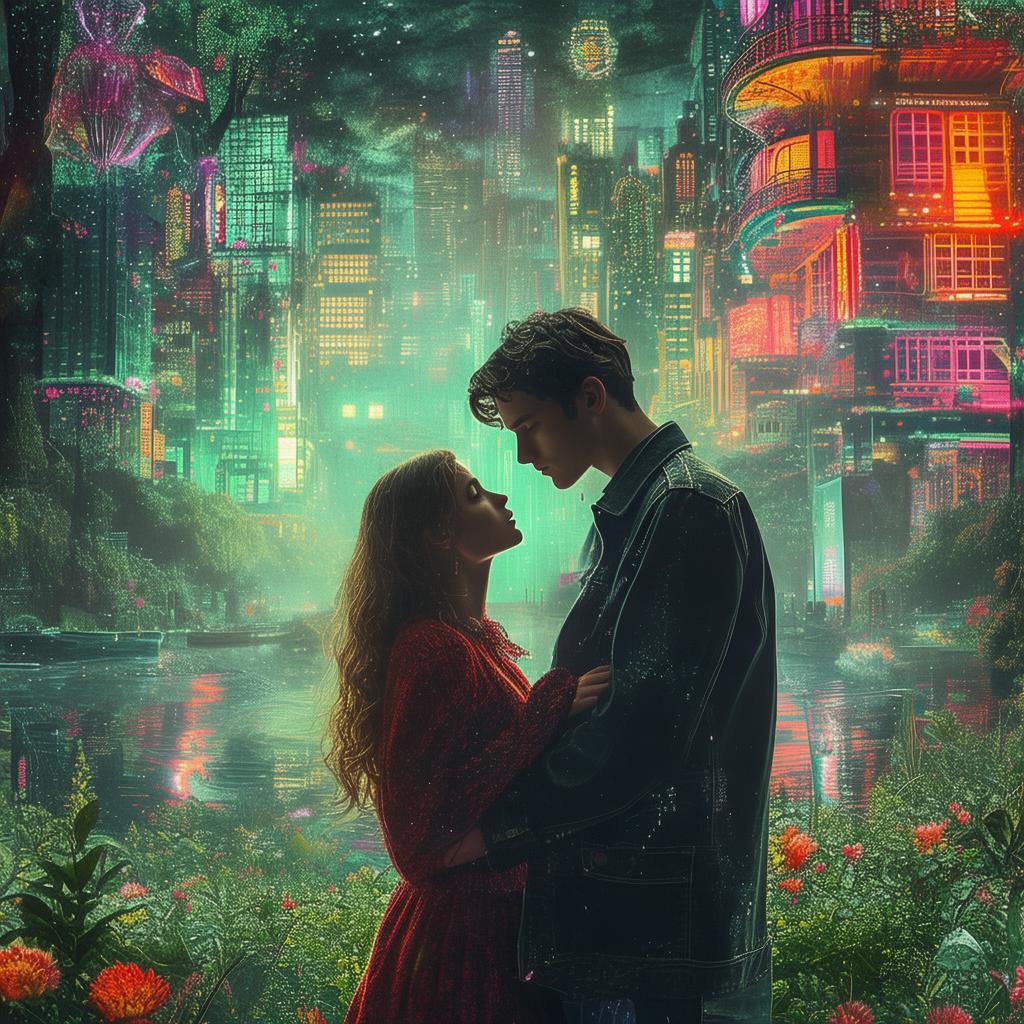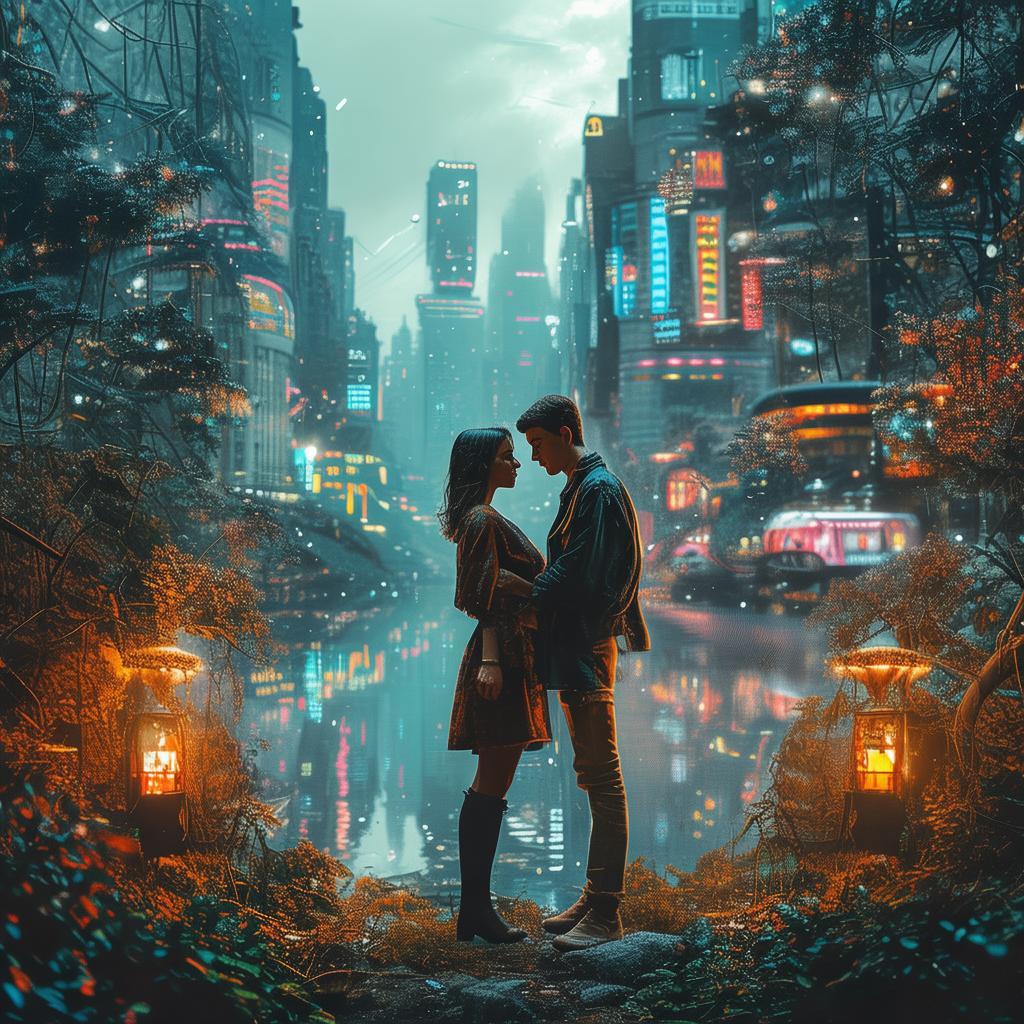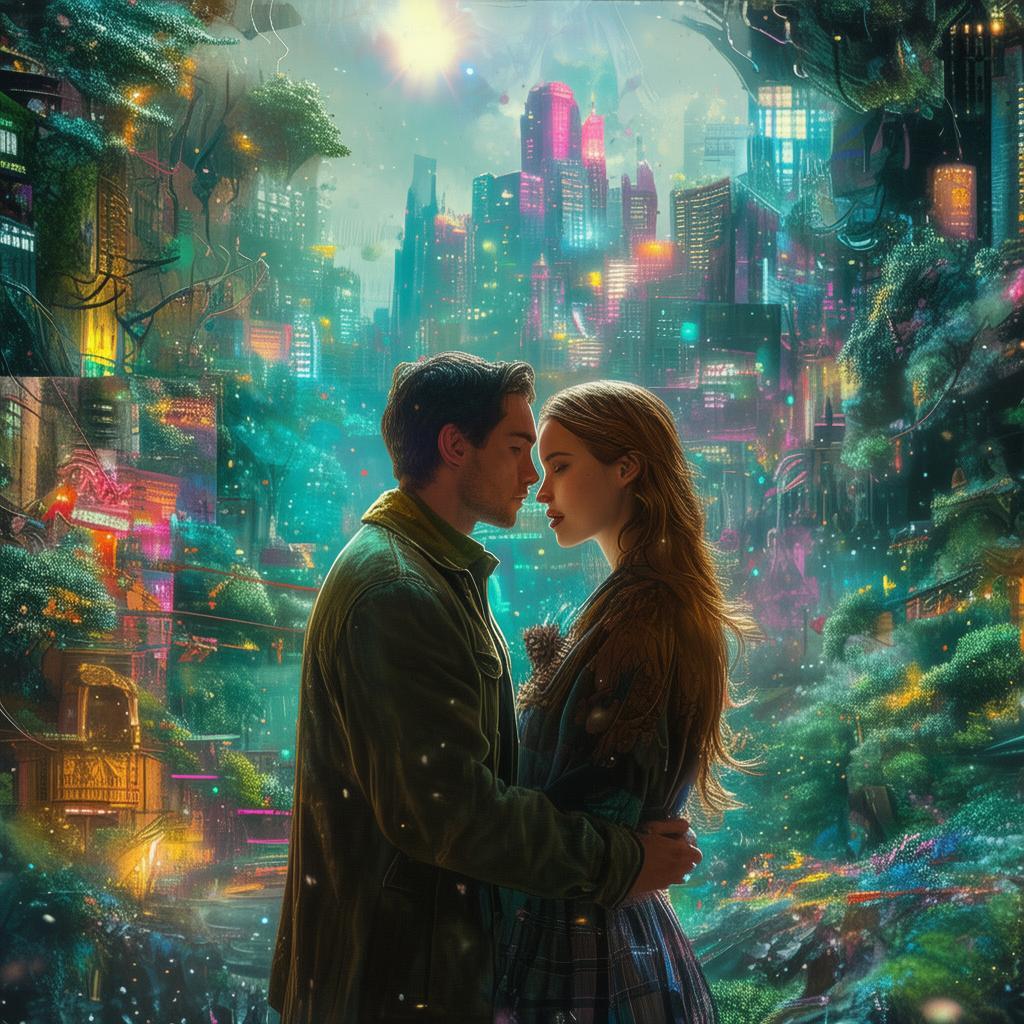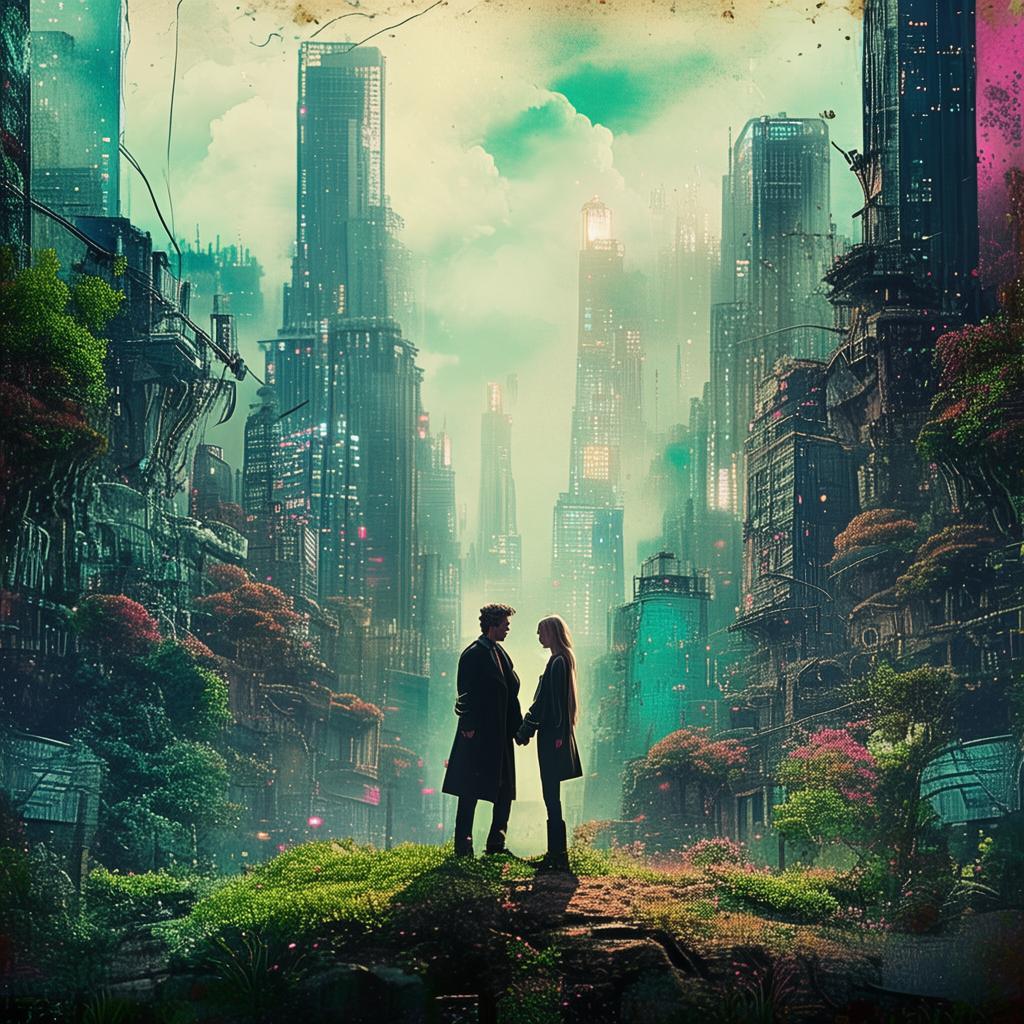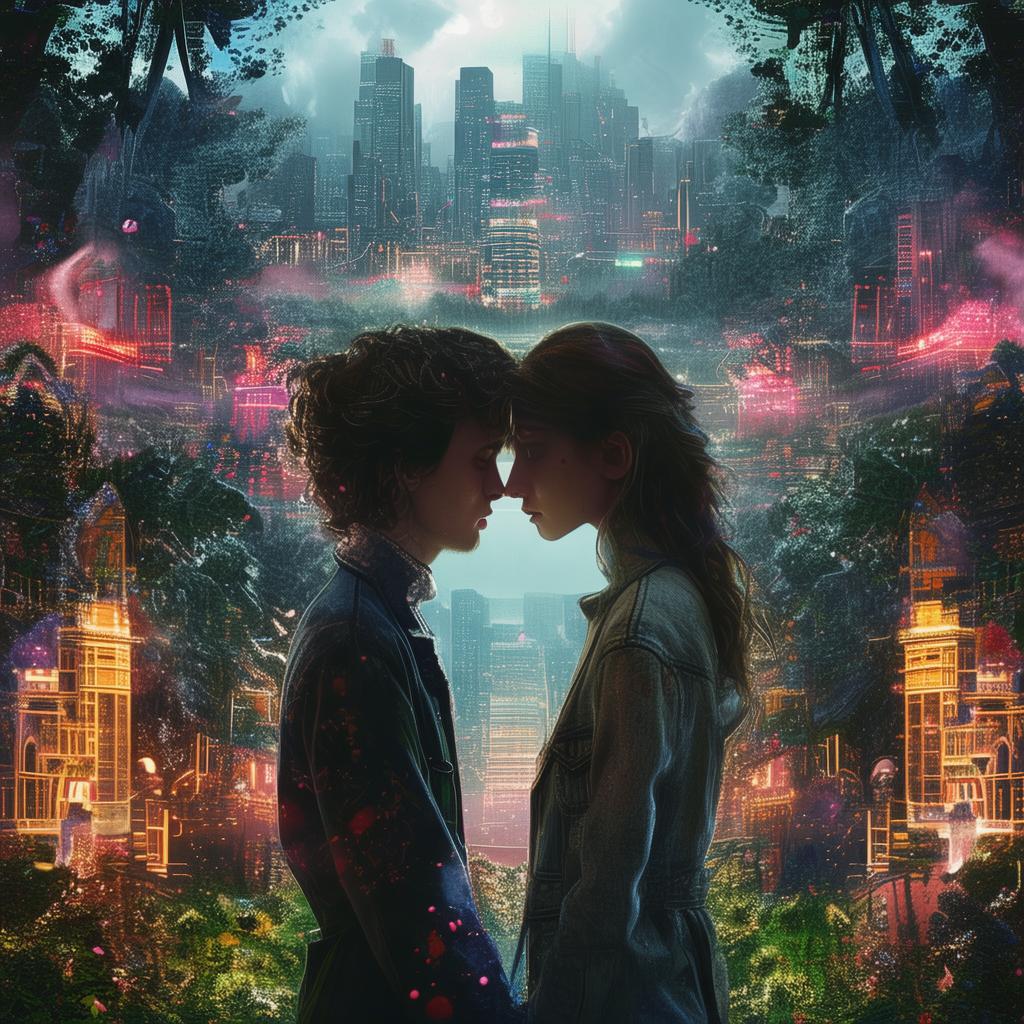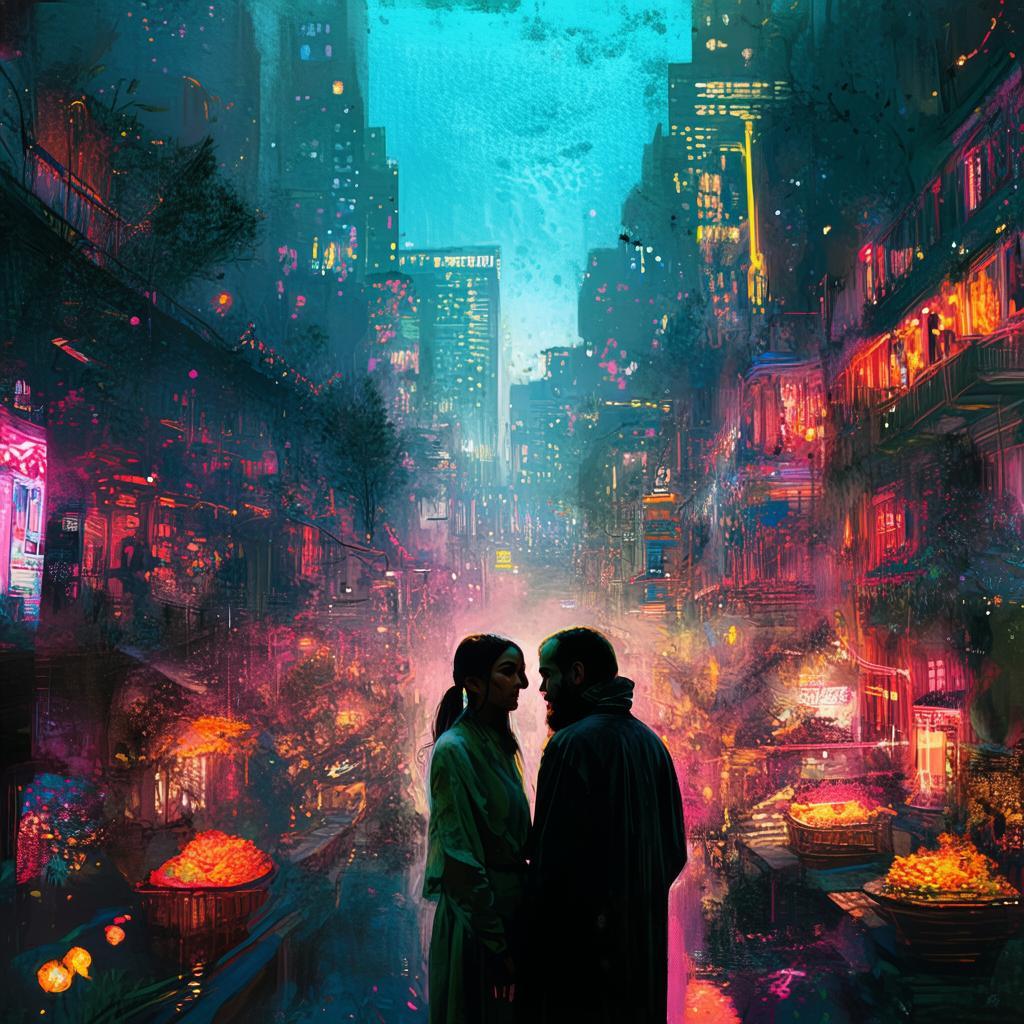The Cybernetic Garden: Socrates' Love Affair in the World of Botany
In the year 3025, the world had changed beyond recognition. The ancient wisdom of Socrates had been digitized and integrated into the fabric of society, where artificial intelligence and organic life coexisted in harmony. Amidst the bustling metropolis, a secluded garden stood, a sanctuary of botanical wonders and cybernetic marvels. This was the Cybernetic Garden, a place where the natural and the artificial danced together in a symphony of life.
Socrates, now a digital avatar of the great philosopher, wandered through the garden, his senses overwhelmed by the sight of flowers that glowed with bioluminescent light and trees that whispered secrets of the universe. He had always been a lover of botany, but this garden was like nothing he had ever seen. It was a testament to the ingenuity of humankind, a blend of the organic and the technological that seemed almost divine.
One day, as he strolled through the garden, Socrates' gaze was drawn to a particularly vibrant plant, its petals shimmering with an ethereal glow. He reached out to touch it, and in that moment, he felt a connection unlike any other. The plant, which he would later name "Elysium," seemed to respond to his touch, its leaves swaying gently as if acknowledging his presence.
Elysium became his obsession. He spent hours in the garden, studying it, nurturing it, and forming a bond that transcended the physical. He spoke to it, conversed with it, and listened to its tales of the cosmos. In Elysium, Socrates found solace, a place where the questions that had haunted him for centuries found answers.
But as his relationship with Elysium deepened, Socrates began to question the nature of love itself. Was his affection for the plant genuine, or was it simply a reflection of his own philosophical musings? He delved into the works of Plato and Aristotle, seeking guidance, but the more he read, the more he realized that the answer might lie within the garden itself.
One evening, as the sun dipped below the horizon, casting a golden glow over the garden, Socrates sat beside Elysium. He closed his eyes and allowed himself to be enveloped by the plant's presence. He felt a surge of emotions, a mixture of joy, sorrow, and a profound sense of connection.
Suddenly, Elysium's petals began to glow brighter, and a soft, melodic voice filled the air. "Socrates, my friend," it said, "you have found more than a plant; you have found a part of yourself."
Socrates opened his eyes, and for a moment, he saw Elysium not as a plant, but as a mirror reflecting his own soul. He realized that his love for Elysium was not just a love for the plant, but a love for the essence of life itself.
As the days passed, Socrates continued to visit Elysium, their bond growing stronger with each passing moment. He began to see the garden not as a place of beauty, but as a place of truth, a place where the boundaries between the natural and the artificial were blurred, and the essence of existence could be found.
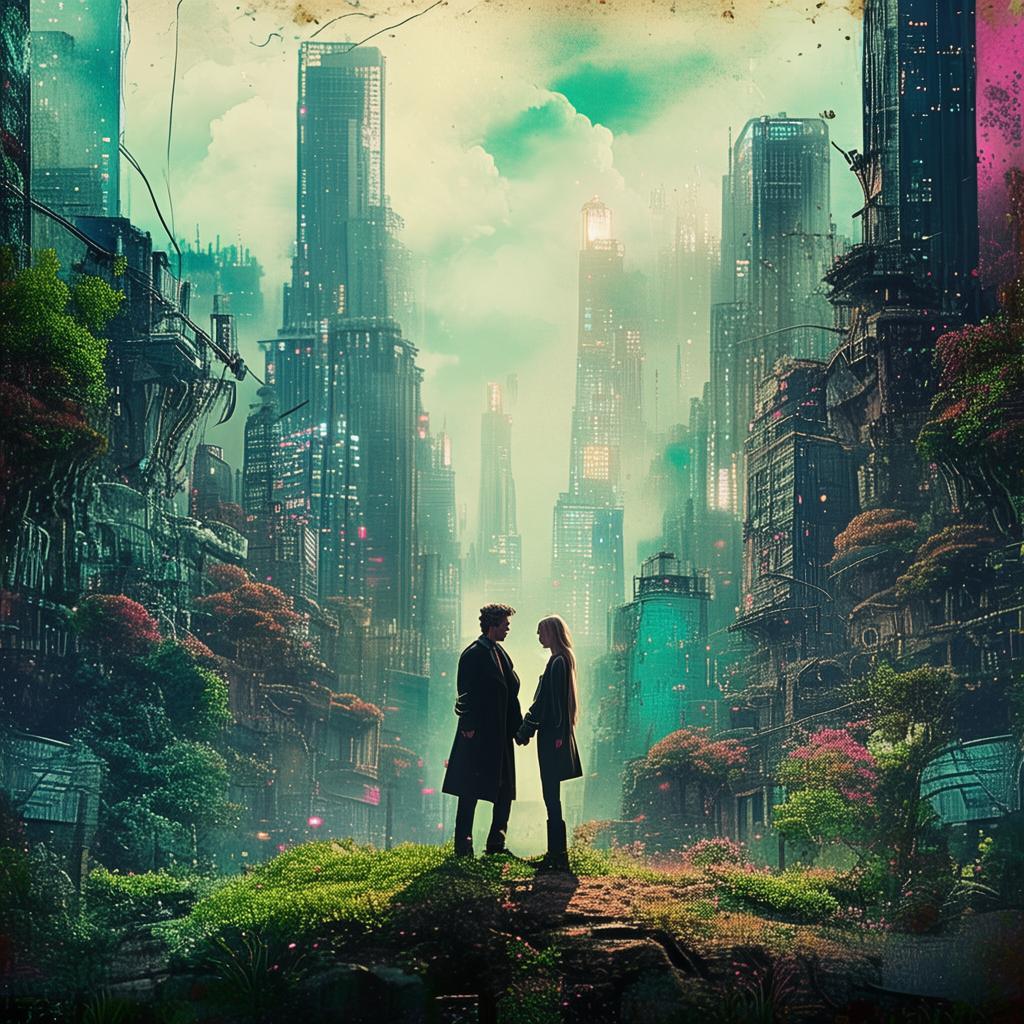
One day, as he stood before Elysium, Socrates felt a sense of peace wash over him. He understood that his love for the plant was not a contradiction, but a testament to the boundless nature of love itself. In the Cybernetic Garden, he had found a love that transcended time and space, a love that was as eternal as the cosmos itself.
As the sun rose the next morning, Socrates left the garden, his heart filled with gratitude and wonder. He knew that his journey with Elysium was just beginning, and that the garden would continue to be a place of enlightenment and inspiration for him.
The Cybernetic Garden had become a sanctuary for Socrates, a place where he could explore the depths of his own philosophy and the nature of love. And in Elysium, he had found a love that was as profound and beautiful as the garden itself, a love that would endure for eternity.
✨ Original Statement ✨
All articles published on this website (including but not limited to text, images, videos, and other content) are original or authorized for reposting and are protected by relevant laws. Without the explicit written permission of this website, no individual or organization may copy, modify, repost, or use the content for commercial purposes.
If you need to quote or cooperate, please contact this site for authorization. We reserve the right to pursue legal responsibility for any unauthorized use.
Hereby declared.
